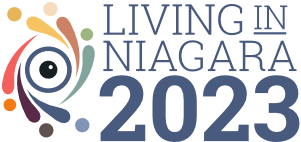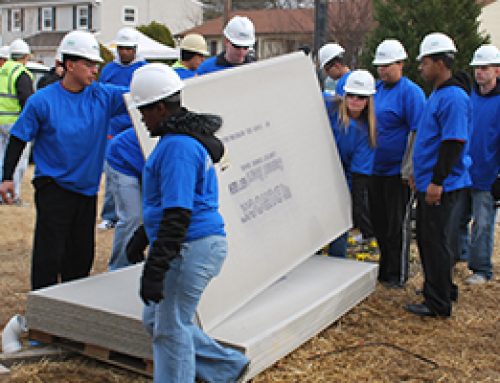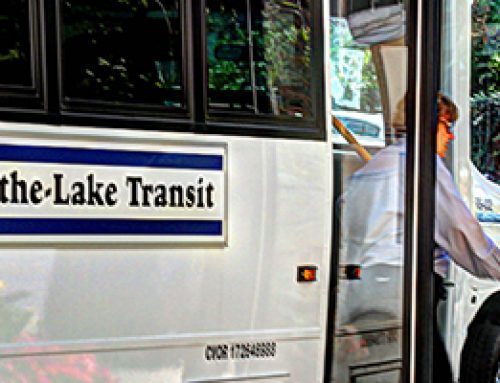Being socially connected with families, friends and with community contacts through social institutions, clubs and organizations fosters social interaction, increases a sense of belonging and inclusion, provides emotional support and builds possible networks for positive action.
Social networks are created through joining activities/organizations such as clubs, a committee, or a marathon. Thus the creation of social networks for an individual in their community comes from that individual taking part in community activities and events.
There is not a lot of data available to measure this indicator for Niagara. There are proxy measures for it, such as the number of people attending public events which are hosted by community groups and local municipal and regional government, although these are not tracked as a whole.
Following are some initiatives in Niagara and beyond that cite the importance of social participation for building socio-economic impact and increasing quality of life.
Niagara Prosperity Initiative
The 2013 Niagara Prosperity Initiative (NPI) Community Impact Report cites ‘Improvements in Personal and Household Assets’ of individuals served by NPI projects as one of its 3 measures.
Social Assets (relationships and networks) is a key area in which NPI is helping to build community capacity to prevent poverty in Niagara.
Source: Niagara Prosperity Initiative Community Impact Report, Niagara Region
Data Retrieved From: https://www.niagararegion.ca/social-services/pdf/NPI-Community-Impact-Report.pdf
Niagara Age-Friendly Community Network
This network is engaging people, businesses and groups throughout Niagara in applying the lens of World Health Organization (WHO) Age-Friendly principles to their planning.
“Respect and Appreciation for all – leveraging the power of intergenerational opportunities, and valuing the wisdom of seniors’ advisory committees to guide local planning” is one of 3 priorities for local Age-Friendly action in Niagara.
Source: Niagara Age-Friendly Community Initiative Year 3 Final Evaluation Report, Niagara Connects, April 2013
Retrieved From: http://www.niagaraknowledgeexchange.com/resources-publications/niagara-age-friendly-community-initiative-year-3-final-evaluation-report/
General information about the Niagara Age-Friendly Community Network is available on the Niagara Region website.
Source: Niagara Age-Friendly Community Network
Retrieved From: http://www.niagararegion.ca/living/seniors/agefriendly/Niagara-Age-Friendly-Community-Initiative.aspx
Advantages for businesses in Niagara planning through an Age-Friendly lens are cited in the guide: ‘Creating an Age-Friendly Business in Welland-Pelham’. “If your business is age-friendly you can attract and keep customers within a large and expanding demographic.”
Source: Welland-Pelham Chamber of Commerce and Welland Senior Citizens’ Advisory Committee
Retrieved From: http://www.niagaraknowledgeexchange.com/resources-publications/creating-an-age-friendly-business-in-wellandpelham/
The Global Age Watch Index 2014
This index ranks countries by how well their Seniors are doing. Canada ranks 4th out of 96 overall. In the “Enabling Environment” domain, Canada ranks 9th and ranks below the regional average for the indicator of satisfaction with public transport (56%). It ranks above the regional average on the other indicators of safety (79%), civic freedom (93%), and social connectedness (94%).
The Age Watch report card for Canada states:
“Social connectedness has a strong positive impact on physical and mental health. Safety issues can be one barrier to social connectedness. Canada as a whole has a relatively low crime rate that has fallen steadily in recent decades. Crimes against seniors are most commonly family abuse and financial fraud. The Government of Canada is taking a number of actions to address elder abuse, including awareness campaigns and legislation such as the 2013 Protecting Canada’s Seniors Act. Provincial governments have similar initiatives. With Canada’s large geographic area, access to public transport varies widely according to the location and size of the community. Larger urban centres are more likely to offer bus services and give seniors special rates. However, most seniors live in areas where the car is the primary form of transportation. It has been found that seniors who have a driver’s licence and usually travel by car are more likely to participate in social and family activities.”
Source: Global Age Watch Index 2014
Retrieved From: http://www.helpage.org/global-agewatch/population-ageing-data/country-ageing-data/?country=Canada
National Seniors Day – October 1st
October 1st is designation as National Seniors Day in Canada, in recognition of the valuable contributions older adults make to Canadian communities, workplaces and society as a whole. Tips and Toolkits for celebrating this particular day are available on the National Seniors Day website.
Source: Government of Canada
Retrieved From: http://www.seniors.gc.ca/eng/pie/nsd/index.shtml
Leadership Niagara (LN) is an example of the growing number of opportunities for emerging leaders in Niagara to connect, build leadership skills and engage in strengthening their community. Every year since 2007, 40 to 45 LN program participants work together on service projects that raise their awareness about community assets and challenges in Niagara.
Source: Leadership Niagara
Retrieved From: www.leadershipniagara.ca/pages/about/
NEXTNiagara is a panel of emerging generation leaders in Niagara with the mission to represent, support and cultivate leadership opportunities through engagement and advocacy. The panel is committed to fostering greater youth retention and seeing Niagara grow as a vibrant and prosperous community where the next generation can live, work and stay.
Source: NEXTNiagara
Retrieved From: http://www.greaterniagarachamber.com/COUNCILS/NEXTNiagara/NEXTNiagara-Panel/
Gennext was formed in 2010 as a cabinet of the United Way of St. Catharines and District. Its mission is to engage the next generation of community leaders in Niagara to get involved in volunteering and raising awareness about the United Way.
Source: United Way of St. Catharines and District
Retrieved From: http://www.niagaraknowledgeexchange.com/partners-projects/gennext/
The Niagara Neighbourhood NEW Idea Fund is a collaborative pool of funding offered by the Niagara Community Foundation, United Way and the Ontario Trillium Foundation, to support important community-based projects around Niagara that increase community participation and engage volunteers. Now in its fifth year, the fund has provided 46 grants to organizations from Grimsby to Wainfleet.
Source: United Way of Niagara Falls and Greater Fort Erie
Retrived From: http://www.unitedwayniagara.org/new_idea_fund.php
PSE 101: Community Development is a Brock University course offered to individuals who are considered motivated and are leaders in the community, but did have not a chance to take part in post-secondary education. These individuals were nominated by their organizations to join the program. Participants explore community development through an interdisciplinary approach that encourages them to think more critically about community engagement, to explore their personal potential and to want to learn more.
Source: Brock University
Retrieved From: https://www.brocku.ca/community-learning/pse-101
Niagara Leadership Summit for Women
A total of 250 people attended this first-time event in October, 2014. It is presented by the YWCA of Niagara Region in partnership with Brock University. The summit presented an inclusive environment to encourage and celebrate women leaders in our community and opened the conversation surrounding women’s issues in Niagara. A major theme was that everyone, regardless of gender, should have the courage and confidence to be the leader they are and want to be. “Leadership is not about being ‘at the top’—there are leaders all around us who make a difference every day. The full-day summit was held at Brock and focused on evaluating, discussing and promoting women’s leadership in Niagara.
Source: Niagara Leadership Summit for Women
Retrieved From: http://www.niagaralsw.ca/page/home
Playground Activity Leaders in Schools (PALS)
PALS is a playground leadership program that trains student leaders in grades four to seven to offer playground games and activities for all students during scheduled breaks. The objectives of this program, offered by Niagara Region Public Health, are: increase physical activity; provide a leadership opportunity for students; and decrease conflict and reduce the incidence of playground bullying.
Source: Niagara Region Public Health
Retrieved From: http://www.niagararegion.ca/health/schools/pals.aspx
Leadership Diversity
Information presented within the indicator, ‘Leadership Diversity’, in the 2008 and 2011 versions of the Living in Niagara report is now captured within other indicators.
In the past, this indicator focused specifically on the type of individuals who are making a difference in our community, based on factors such as gender, ethnicity, socio-economic status and so forth. Our research shows that leadership diversity may not adequately explain leadership in the Niagara region.
However, the following information does relate to this topic:
- In 2013, 4 women and 3 men were featured on Leadership Profiles on the Niagara Region website.
- Of the 30 Niagara Regional Councillors, 5 were women and 25 were men.
Source: Regional Municipality of Niagara
Retrieved From: http://www.niagararegion.ca/news/profiles/default.aspx and http://www.niagararegion.ca/government/council/profiles/default.aspx








